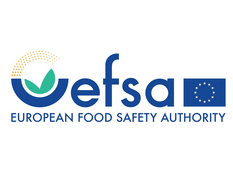Contact
10589 Berlin
Deutschland Telephone: +49 30 18412 34018 +49 30 18412 34018 E-mail: efsa-focal-point@bfr.bund.de

Within the scope of the EU Food Safety System the German Federal Institute for Risk Assessment (BfRshort forGerman Federal Institute for Risk Assessment) co-operates with the European Food Safety Authority (EFSAshort forEuropean Food Safety Authority) in the field of risk assessment and risk communication.
EFSAshort forEuropean Food Safety Authority, established in 2002 and based in Parma, Italy, is the keystone of the European Union's risk assessment and risk communication. EFSAshort forEuropean Food Safety Authority was established as part of a comprehensive programme to improve food safety in the EU and to ensure a high level of consumer protection. EFSAshort forEuropean Food Safety Authority is financed by the EU budget. It responds to requests from the European Commission, the European Parliament and EU Member States in its area of responsibility.
The German Federal Institute for Risk Assessment (BfRshort forGerman Federal Institute for Risk Assessment) was established on 1 November 2002 as an authority under public law to strengthen consumer health protection. On the basis of internationally recognised, scientific assessment criteria the institute prepares expert reports and opinions on the safety of foods, substances and products. Like Germany most EU Member States have set up risk assessment authorities at the national level to provide scientific advice to national governments.
In the field of food and feed safety BfRshort forGerman Federal Institute for Risk Assessment co-operates closely with EFSAshort forEuropean Food Safety Authority and national authorities in the European Member States to ensure that the risk assessment work undertaken at the national level is co-ordinated and consistent with that done at the European level.
One link between all the national authorities of the 27 EU Member States and EFSAshort forEuropean Food Safety Authority is the EFSA’s Advisory Forum, in which BfRshort forGerman Federal Institute for Risk Assessment President Professor Dr. Dr. Andreas Hensel is the German member. BfRshort forGerman Federal Institute for Risk Assessment scientists - many of them members of EFSAshort forEuropean Food Safety Authority panels - work together with EFSA’s Scientific Committee and its Advisory Forum. This is an opportunity for them to gather and exchange scientific information and data, to co-ordinate work programmes, to pool resources and to co-operate on joint projects.
EFSAshort forEuropean Food Safety Authority is a European authority funded from the EU budget and its headquarters are in Parma, Italy. EFSA’s key role is to provide independent scientific advice and communication on risks associated with the food chain. The European Food Safety Authority was set up in January 2002 as part of a comprehensive programme to improve the EU food safety system and to ensure a high level of protection for European consumers.
EFSA’s risk assessment work is largely undertaken by its Scientific Committee, Scientific Panels and other expert groups who deliver opinions on all matters linked to food and feed safety, nutrition, animal health and welfare, plant protection and plant health.
In the EU food safety system, like in Germany, risk assessment is undertaken separately from risk management. The task of assessing risks with regard to food is done independently from the process of policy making and risk management decisions.
At the European level the European Commission and the European Parliament are the major EU risk managers. These bodies are responsible for developing policies and taking risk management decisions in the context of food and feed safety. Their tasks involve adopting new legislation, updating and revising existing rules, developing new policies in unregulated fields, deciding whether or not to approve specific substances and taking action to control matters of serious concern for the food chain (such as disease outbreaks in animals or food contamination).
EFSA’s scientific advice serves primarily to inform the policies and decisions of these risk managers. A great deal of EFSA’s work therefore entails reacting to specific requests for scientific support from risk managers. EFSA’s main ‘client’ is the European Commission due to its central role in risk management at EU level in the field of food and feed safety. While much of EFSA’s work is undertaken in response to Commission requests, EFSAshort forEuropean Food Safety Authority also responds to questions from the European Parliament and EU Member States.
In Germany in its capacity as a risk assessor, BfR’s impartial analysis and expert advice provide a sound scientific basis for policies and legislation to do with the food chain, substances and products.
BfRshort forGerman Federal Institute for Risk Assessment coordinates requests for scientific opinions to EFSAshort forEuropean Food Safety Authority at the national level.
BfRshort forGerman Federal Institute for Risk Assessment has the statutory remit of informing consumers about possible, identified and assessed risks that may be linked to foods, substances and products. It seeks to communicate the assessment process in a transparent and clear manner to the general public and to render science visible and usable for consumers through comprehensive risk communication. BfRshort forGerman Federal Institute for Risk Assessment publishes its expert opinions and health assessments on its website.
In the field of food and feed safety the BfRshort forGerman Federal Institute for Risk Assessment Risk Communication Department cooperates closely with the EFSAshort forEuropean Food Safety Authority Communications Department. EFSAshort forEuropean Food Safety Authority seeks to involve national food safety authorities in Member States both in the development and dissemination of its scientific advice.